Ep.49 The Content Of Your Thoughts Are Not Important
The Content Of Your Thoughts Are Not Important
One of the biggest struggles my clients have is when they get caught up in the belief that their specific intrusive thoughts or fears warrant LOTS of attention and moral weight.
This is one of the most difficult things to manage when you are struggling with significant anxiety. We can see that other peoples fears are irrational, but when it comes to our specific fear, we become unglued, confused and reactive.
Here are a few questions that I want you to ask yourself before listening to this podcast.
Have you caught yourself saying any of the following?

1. “It’s easy for you to say to, “just accept the thoughts”. You don’t have thoughts about hurting someone all day like I do (insert here whatever thought you are obsessing or ruminating on). This thought is WAY worse than other thoughts.”
2. “This isn’t any old thought. This would destroy my life if this thought came true.”
3. “I know I have to accept the uncertainty, but this isn’t just a thought”
These are all examples of getting caught up in our thoughts content.
When we get caught up in the CONTENT of our thoughts we can get stuck in a cycle of anxiety.
When we give our thoughts all of this attention and value, our brains become hypervigilent and get even more worked up about the presence of these thoughts, feelings, and sensations. Please note here, I am in NO WAY telling you this is your fault. This is just the way our brains work. We also have be to careful about our narrative about this thought. If we tell ourselves the thought is “bad”, that triggers self-judgment, shame and self-doubt. Then we are off and running, judging ourselves more and putting ourselves down.
Listen to the podcast to hear my FIVE STEPS to help when you are getting caught in the content of your thoughts.
At the end of the podcast, I offer a little Challenge for you.
Observe your thoughts and ask yourself if you could start to make any of these changes in your life.
If you do notice that you are giving too much weight to a thought, try to practice Non-judgment (Ep 1) or Beginners Mind (ep 6) or What you say to yourself Matters (ep 17).
Thank you again for supporting me with this podcast and with CBT Schools online courses. Please click here to find out more about Mindfulness School for OCD.
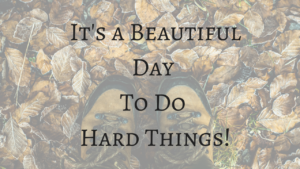
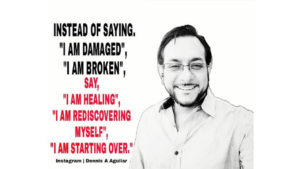
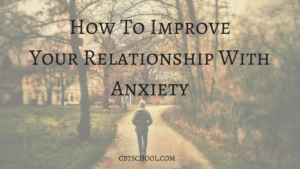
 Sheva Rajaee (forgive me for the error with her maiden name in the podcast) is a lovely friend of mine and I was lucky enough to get to work alongside her at the center where we were trained.
Sheva Rajaee (forgive me for the error with her maiden name in the podcast) is a lovely friend of mine and I was lucky enough to get to work alongside her at the center where we were trained.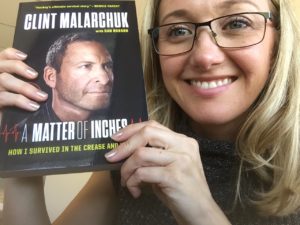 Clint and his wife told their beautiful story about Clint’s struggles with OCD and Trauma. Clint shared all about his journey of managing obsessions and compulsions while excelling as a professional hockey player. There was SO much about Clint and his wife presentation that I loved, but one thing stood out to me as being REALLY important. Clint shared about his Anger. Clint and his wife shared how he was overwhelmed with rage. Clint was angry at himself. Angry with his wife for demanding her get help. Angry at his disorder, for taking so much away from him.
Clint and his wife told their beautiful story about Clint’s struggles with OCD and Trauma. Clint shared all about his journey of managing obsessions and compulsions while excelling as a professional hockey player. There was SO much about Clint and his wife presentation that I loved, but one thing stood out to me as being REALLY important. Clint shared about his Anger. Clint and his wife shared how he was overwhelmed with rage. Clint was angry at himself. Angry with his wife for demanding her get help. Angry at his disorder, for taking so much away from him.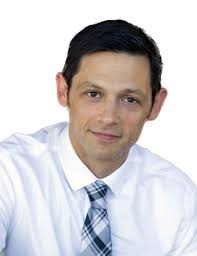 You guys know how much I LOVE breaking down ALL THINGS ANXIETY and then deliver it in easy and helpful ways. In today’s episode, I am THRILLED to share Jon Hershfield’s wisdom with you. He is a genius at breaking things down into easy-to-understand ways.
You guys know how much I LOVE breaking down ALL THINGS ANXIETY and then deliver it in easy and helpful ways. In today’s episode, I am THRILLED to share Jon Hershfield’s wisdom with you. He is a genius at breaking things down into easy-to-understand ways.